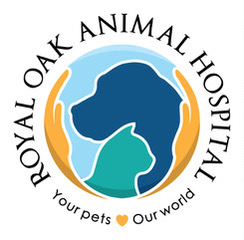Library
-
Benign fibrous skin tumors can go by many names and in many cases don't need treatment. Surgical excision can be curative unless certain types are due to an underlying tumor elsewhere. The main focus in many cases is addressing underlying allergies or sources of pressure. To adequately diagnose these tumors, a biopsy and histopathology are usually necessary.
-
Mammary tumors develop due to abnormal reproduction of the cells that make up the breast tissue. They can be benign or malignant. The incidence of these tumors is related to hormone status, specifically whether a dog is intact or has had an ovariohysterectomy, age, and breed. Because dogs can have both benign and malignant tumors at the same time, surgical removal and histopathology of all tumors are very important.
-
Benzoic acid + malic acid + salicylic acid (brand name Derma-Clens®) is an acidic cleansing agent used on burns, wounds, and other skin conditions in cats and dogs. Benzoic acid + malic acid + salicylic acid comes in a topical cream.
-
Benzonatate is an antitussive (cough suppressant) medication used to treat coughing in dogs. It is used off label (extra label) in veterinary medicine. Benzonatate comes in capsules that must be given whole. Use with caution as there is a high potential for toxicity and overdose.
-
Benzoyl peroxide topical products (2%, 5%) are used in cats and dogs to treat bacterial infections of the skin. They are available as over-the-counter veterinary products in the form of shampoos, gels, and cream rinses.
-
Betamethasone + gentamicin topical, also known as gentamicin/betamethasone topical (brand names GenOne Otic, Betagen, Vet Beta-gen, Gentacalm), is a combination antibiotic and steroid used to treat superficial skin infections and ear infections. It is labeled for use in cats and dogs to treat infections of the anal glands, ears, and skin. This medication comes in liquid drop solution, spray, and ointment forms. Avoid use in pets with ruptured ear drums.
-
Betaxolol ophthalmic is a topical eye medication prescribed off-label in veterinary medicine to treat glaucoma in dogs, cats, and horses. It comes as a liquid eye drop to be administered on the surface of the eye.
-
Bethanechol chloride is given by mouth or injection and is used off label to increase urinary or intestinal movement/activity. Common side effects include vomiting, diarrhea, drooling, and lack of appetite.
-
Bexagliflozin (brand name Bexacat®, Brenzavvy®) is an oral glycemic control medication used in cats with diabetes mellitus. It is used to lower blood sugar levels in cats with diabetes mellitus not previously treated with insulin. Bexagliflozin comes in tablet form.
-
Bilberry is an over the counter supplement given by mouth, and is used off label to treat conditions of the eyes, heart and blood vessels, diabetes, and tumors. Give as directed by your veterinarian. There are no known side effects, but information is limited. There are no known contraindications. Certain medications should be used with caution in combination with bilberry. If a negative reaction occurs, please call your veterinary office.


